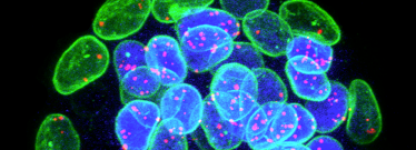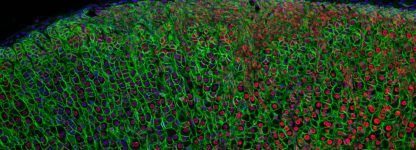Endocrine and paracrine communications
allow specialized organs and individual cells to coordinately exert their activities in an intact organism. These signals ensure the maintenance of body homeostasisand cellular integrity, despite variations in environmental conditions and nutritional status. Abnormal stimulation of specific receptors or dysfunction of downstream transduction pathways that relay hormonal, metabolic or paracrine signals lead to metabolic/endocrine diseases and/or may predispose to cancers. The core of our strategy is the development of novel animal models in order i) to unravel the signaling pathways involved in normal development and ii) to decipher the processes involved in tumor initiation and progression (prostate, adrenal, gonads) as well as in the establishment of metabolic and endocrine disorders (testicular hypofunction, adrenal dysfunction, impairment of spermatogenesis, ovarian pathologies). Our aim is to identify new diagnosis and prognosis markers as well as new pharmacological targets. This is achieved through our interconnections with various clinical departments. Our research focuses on genetic, histochemical, biochemical, molecular and genomic approaches using genetically engineered animal models and patients’ sample collections.















